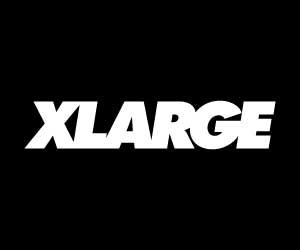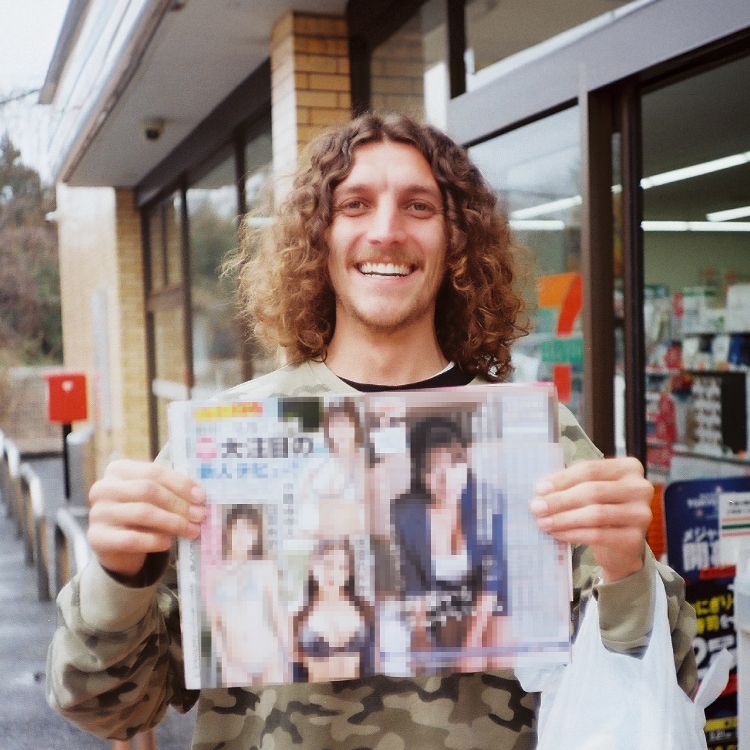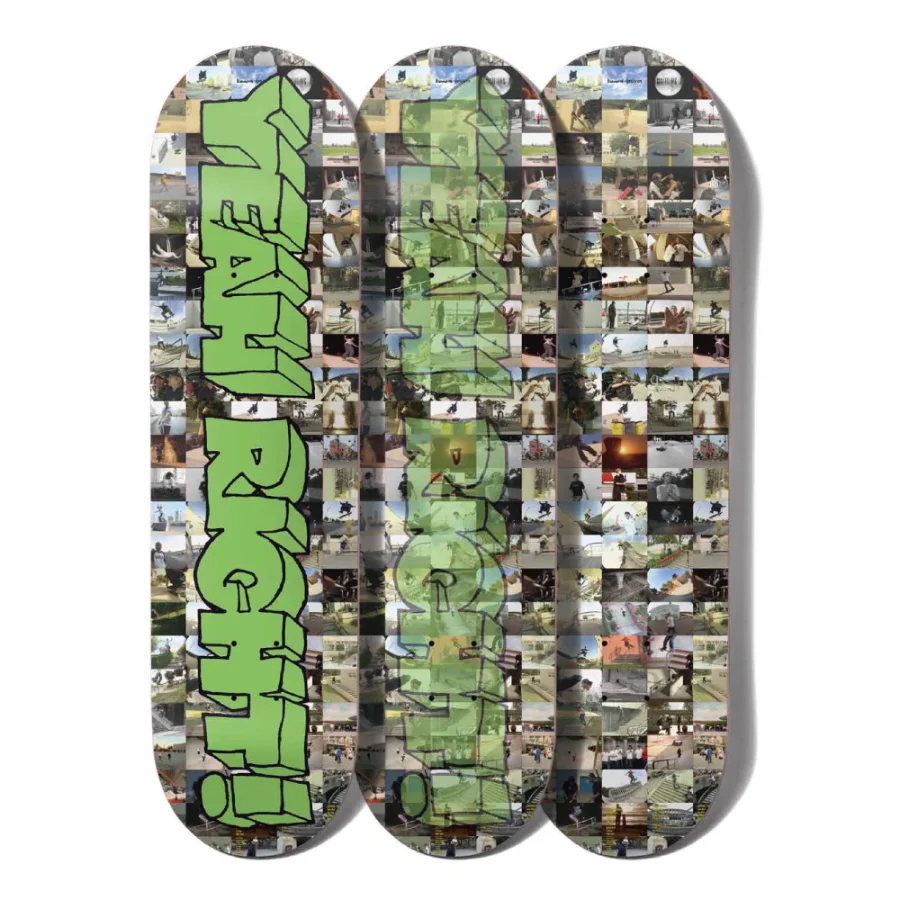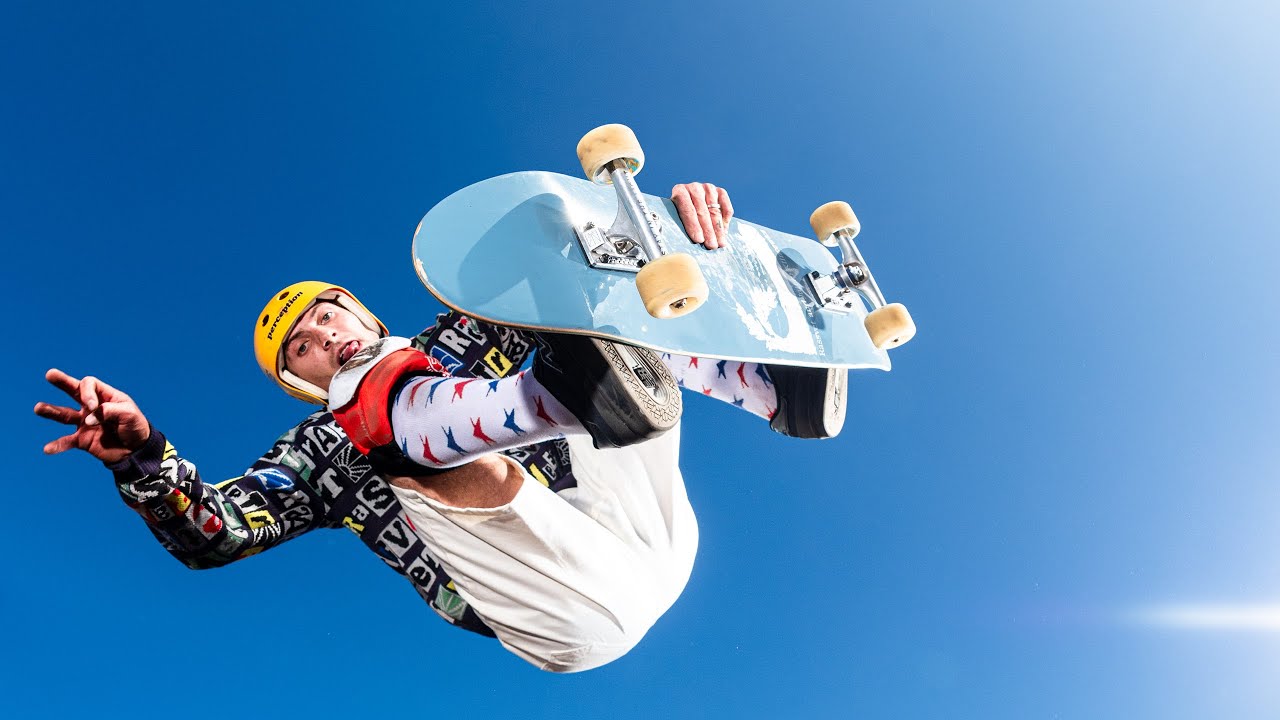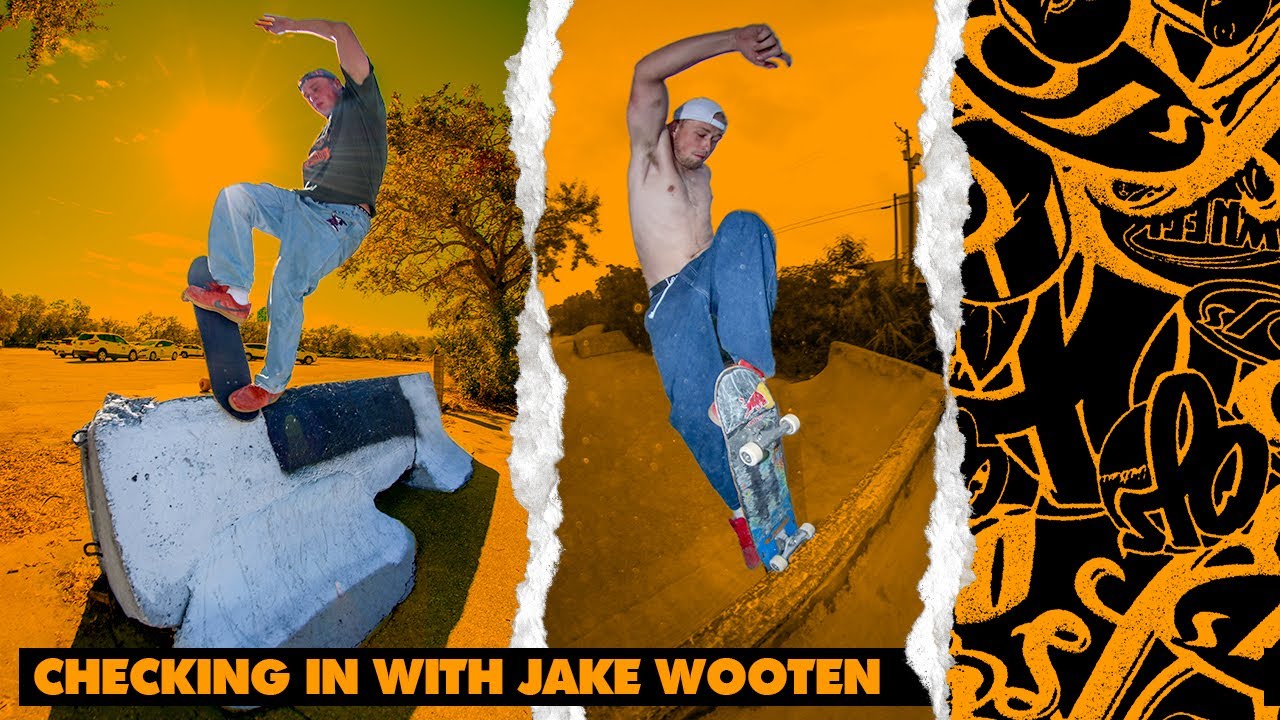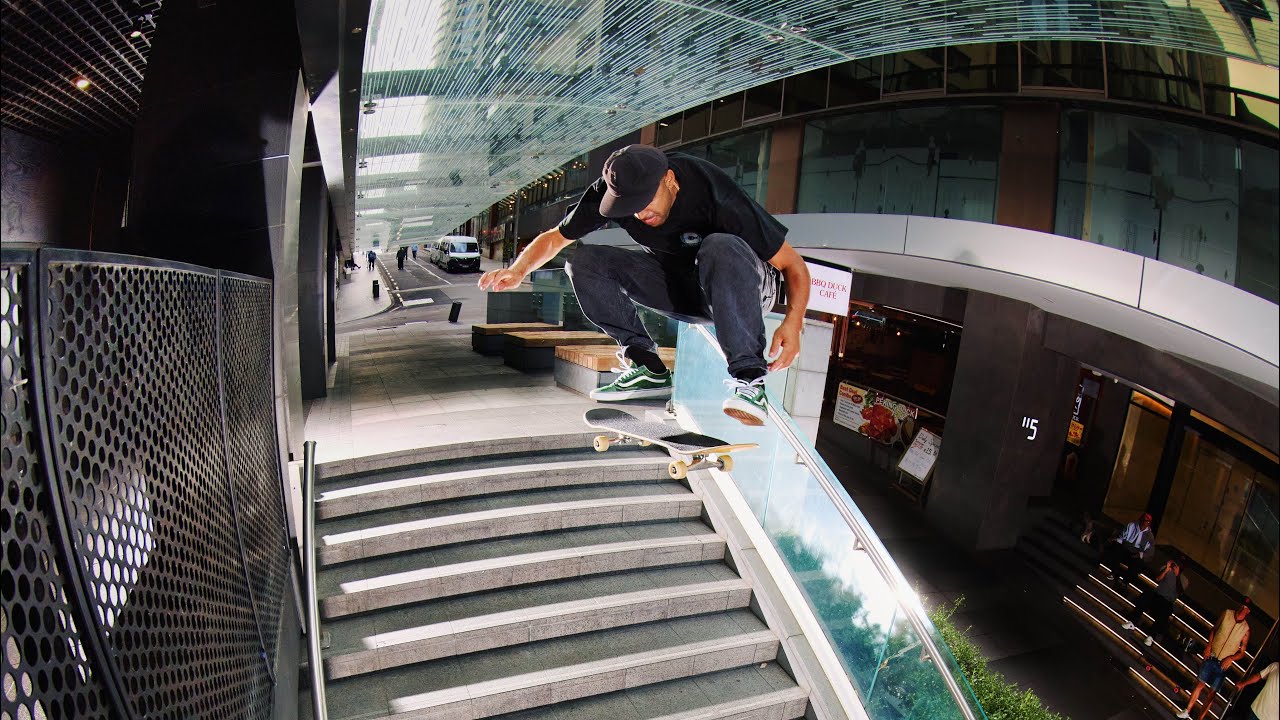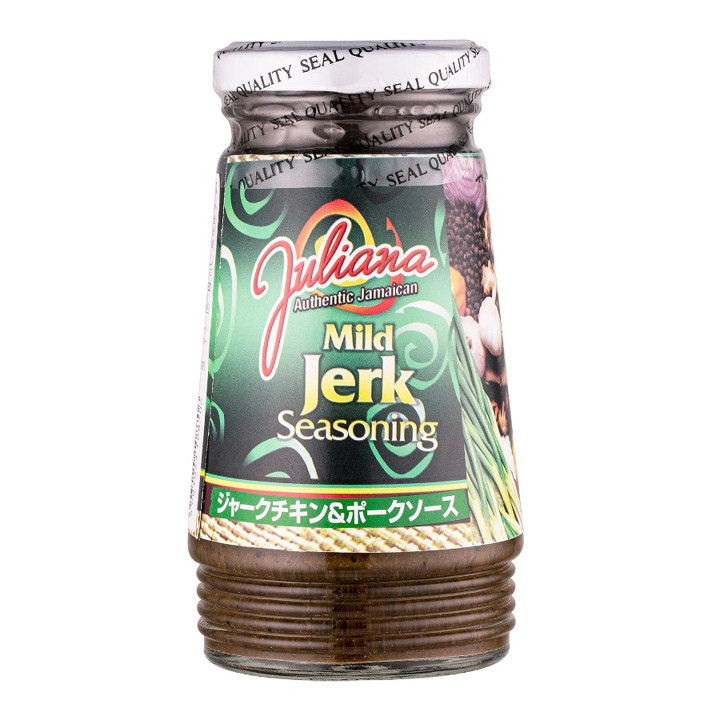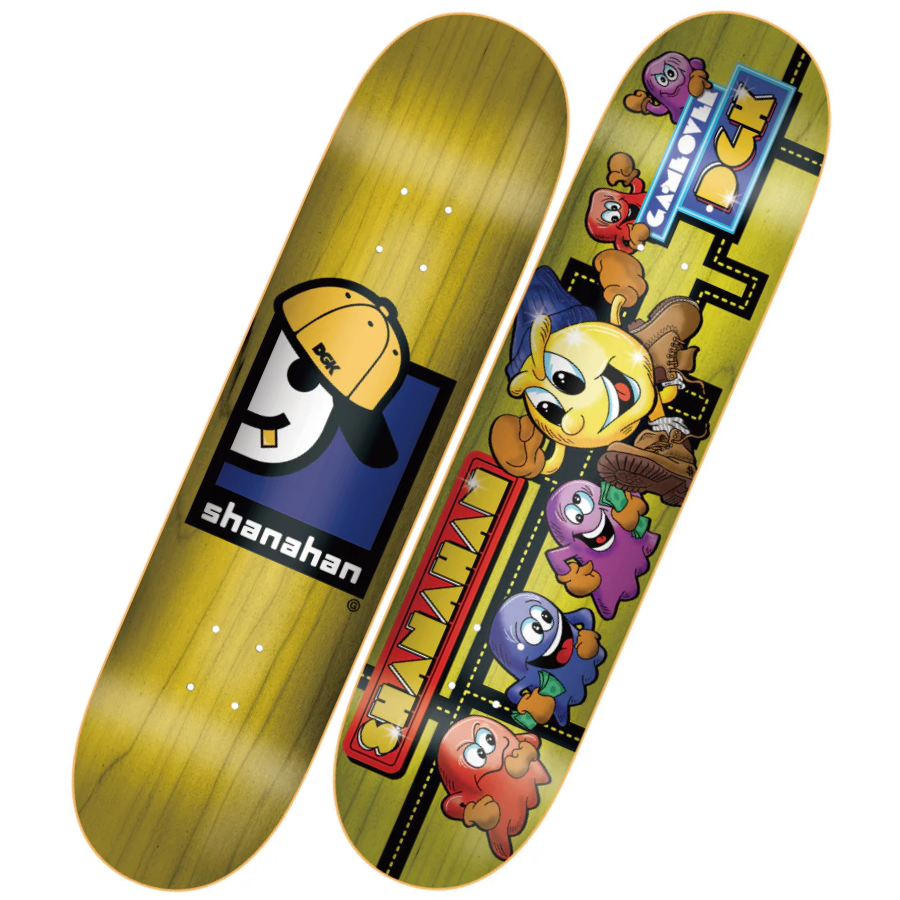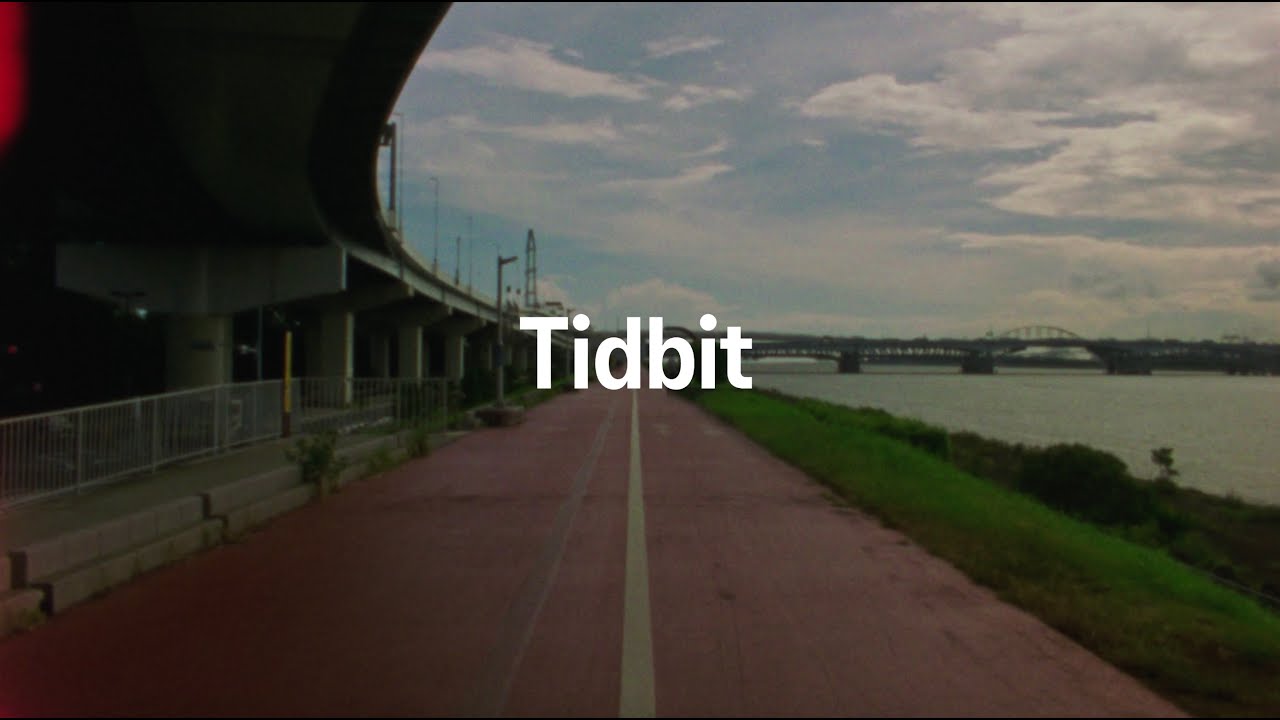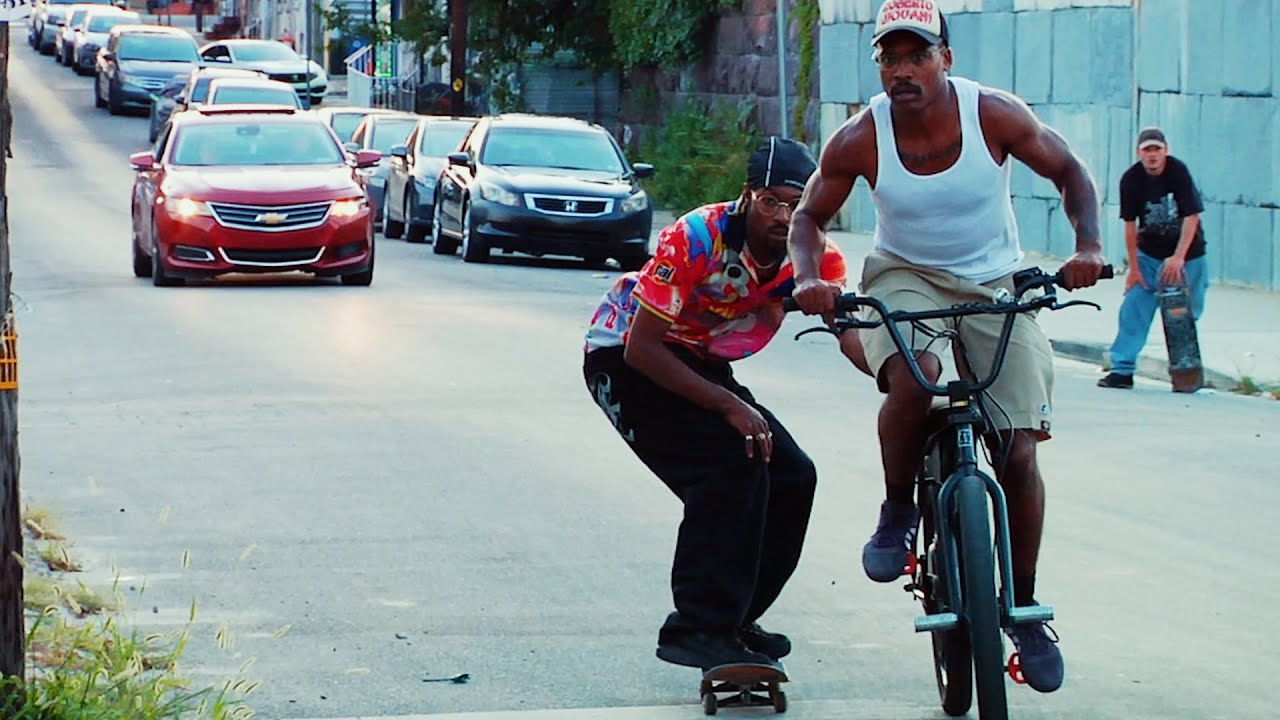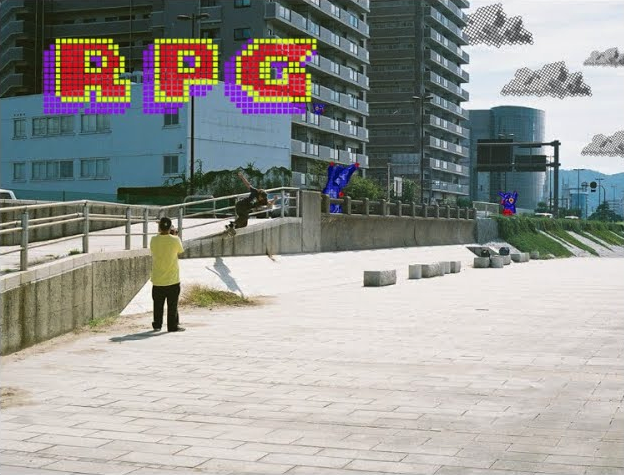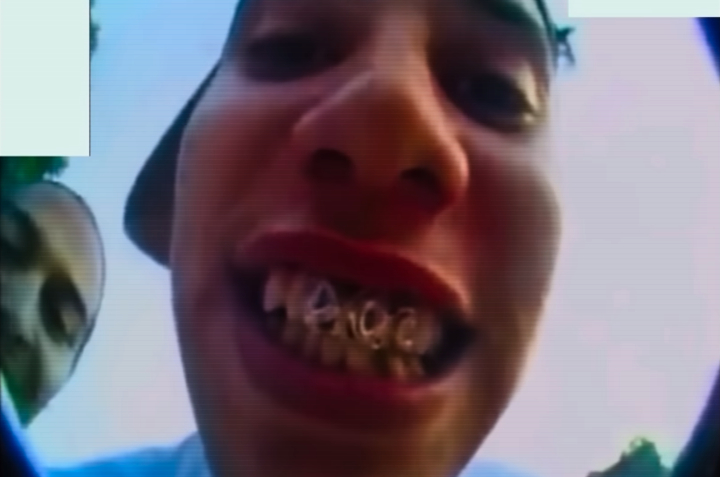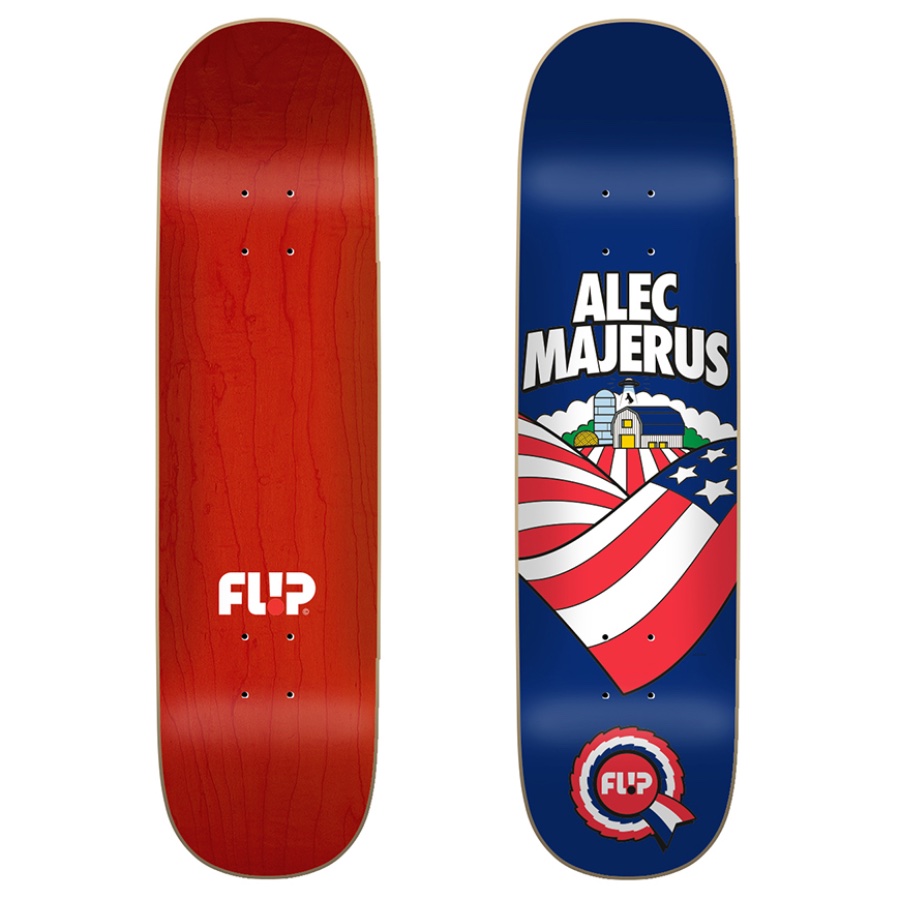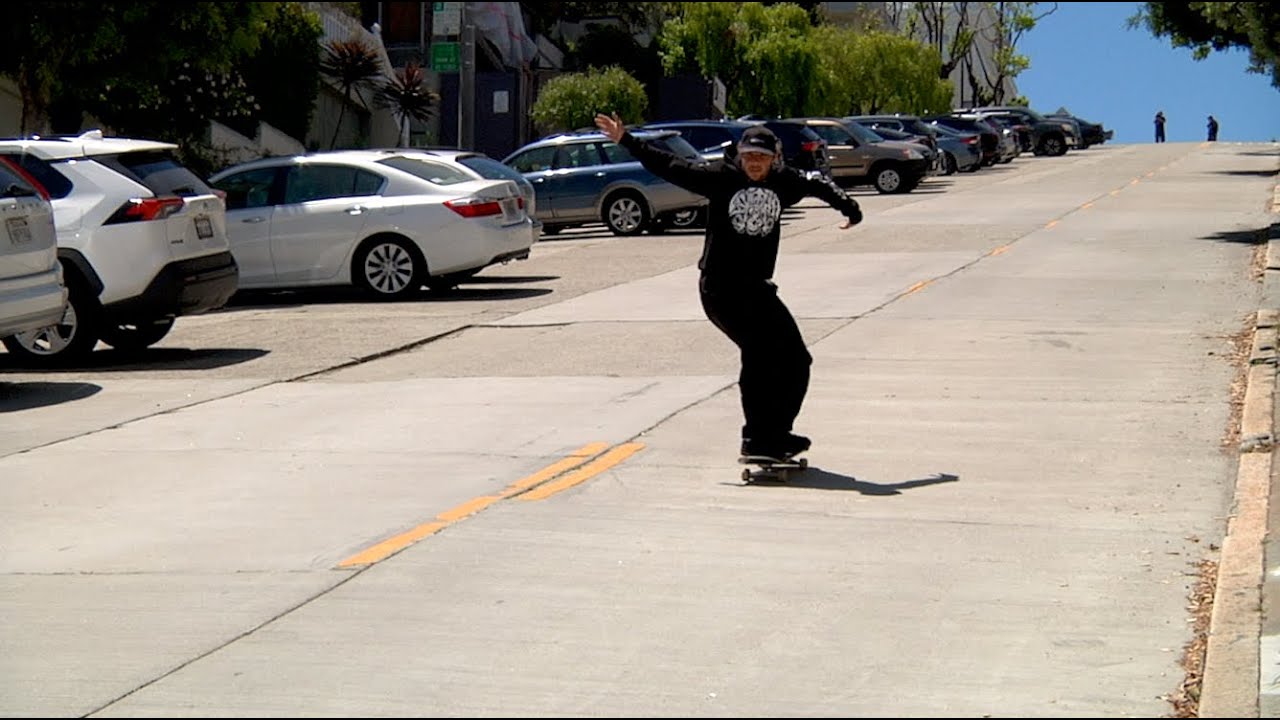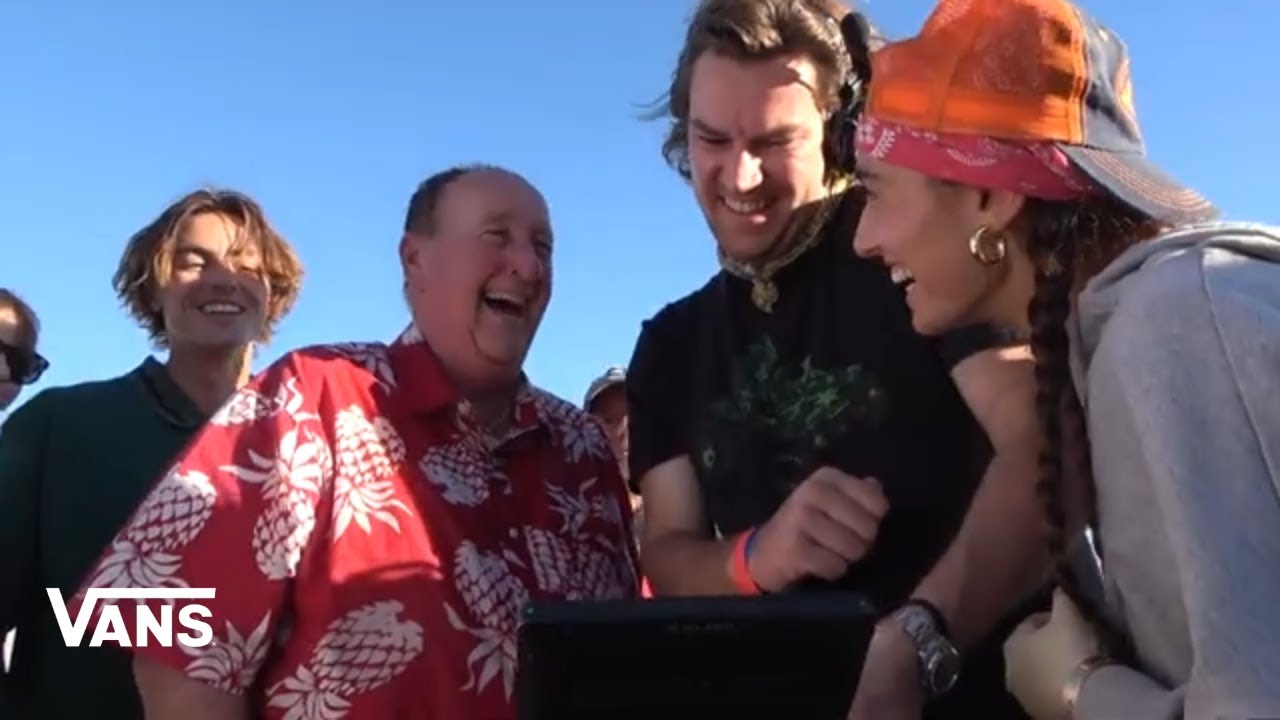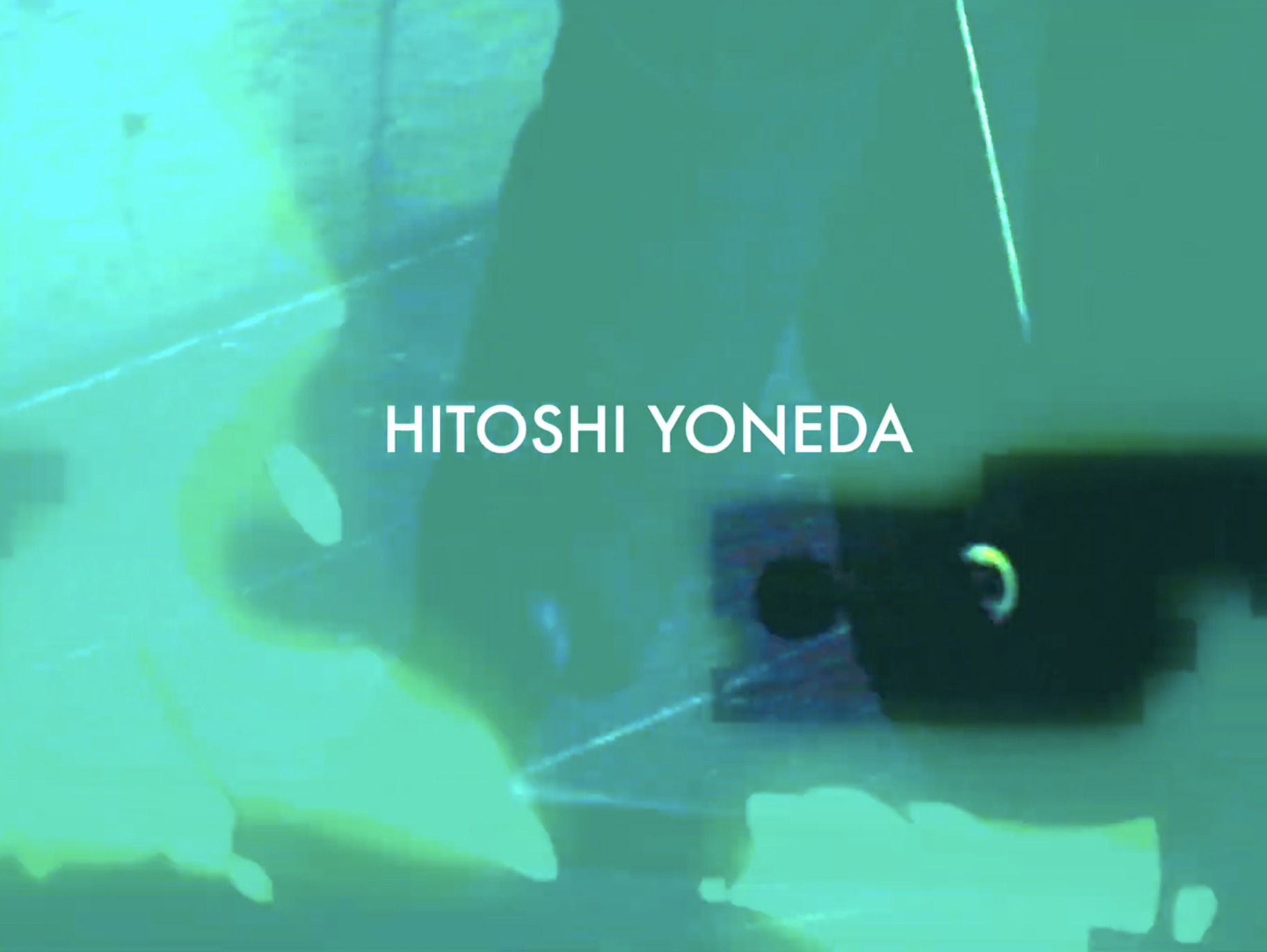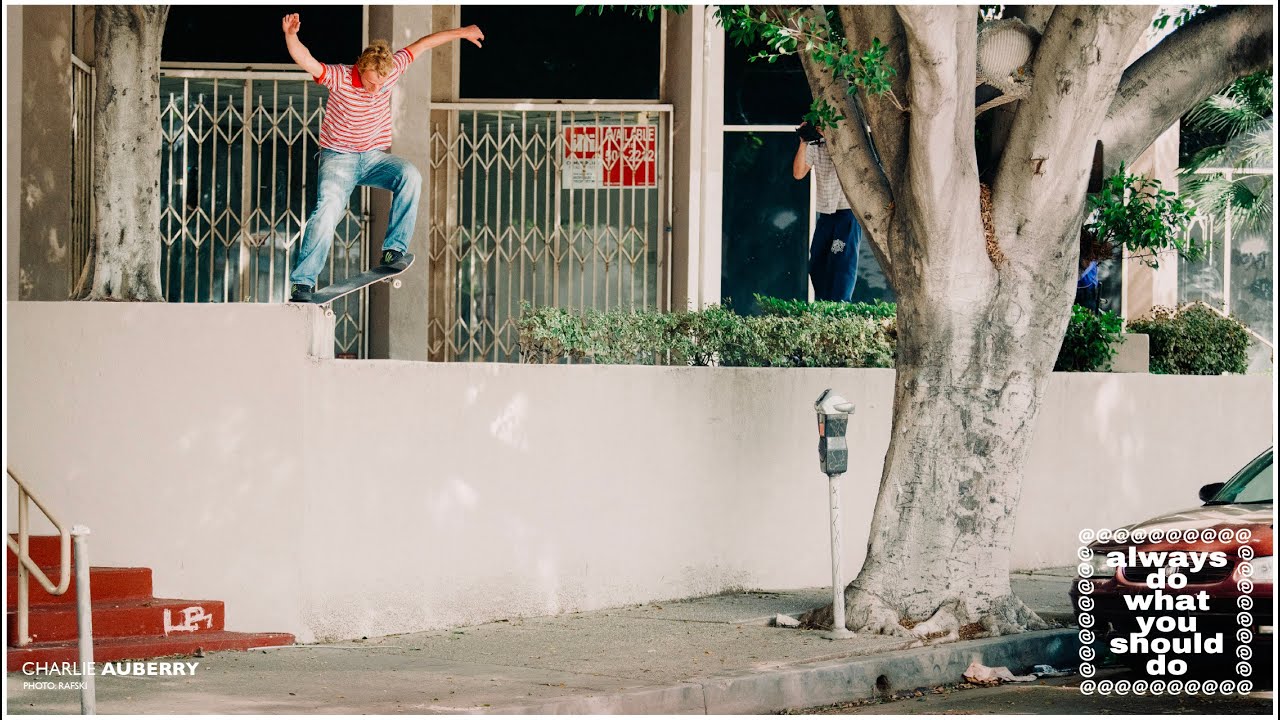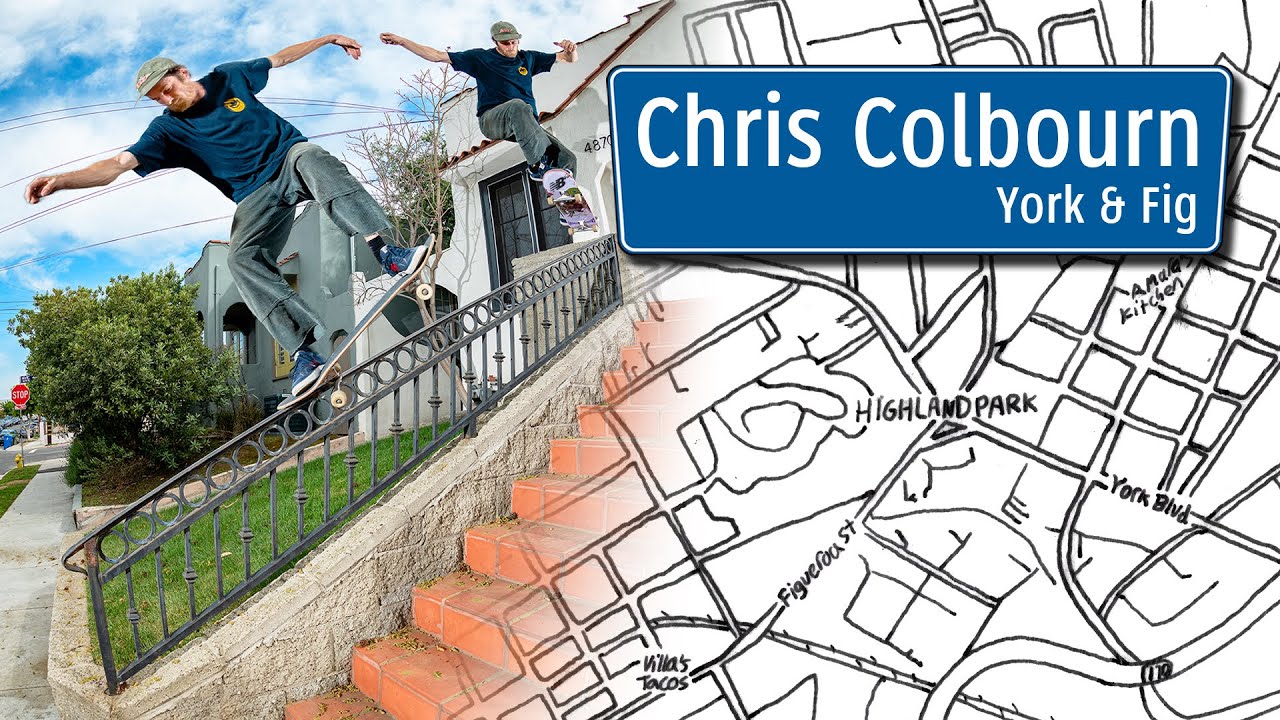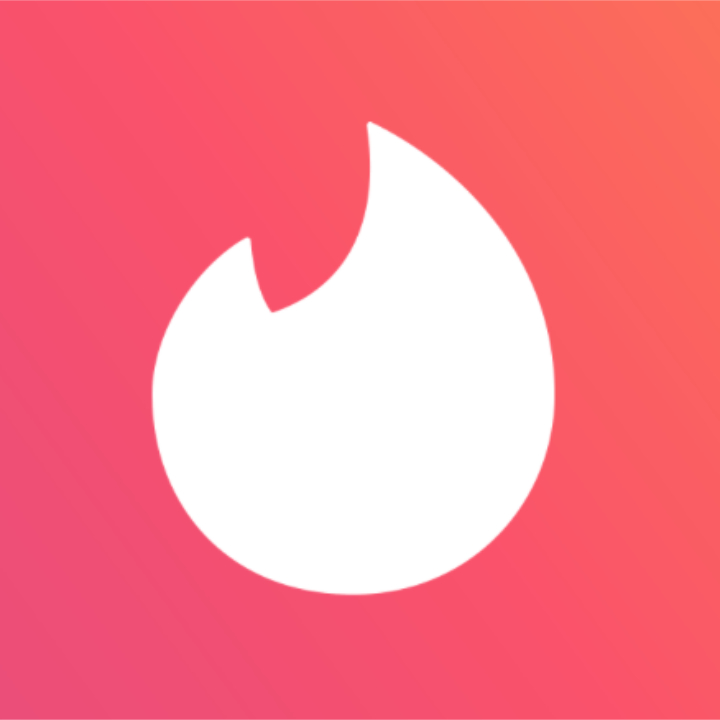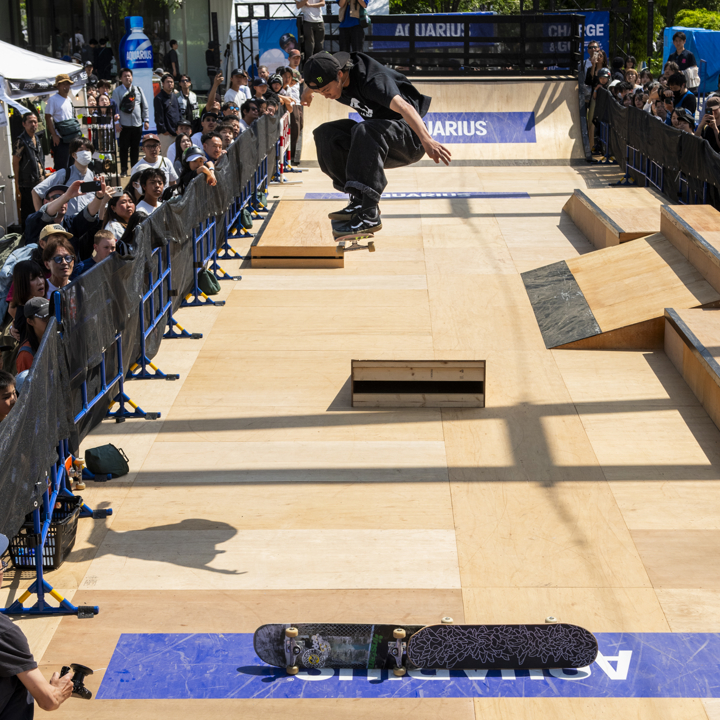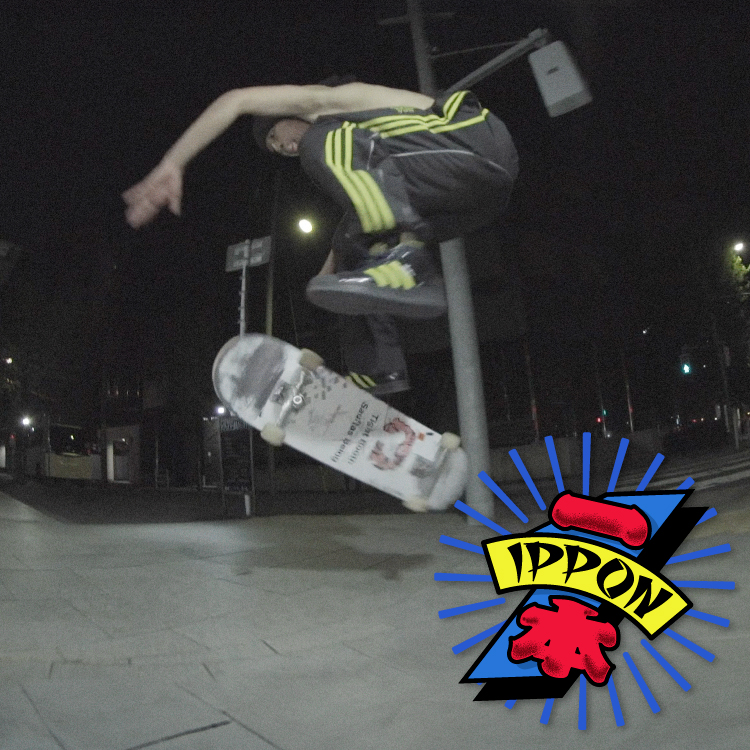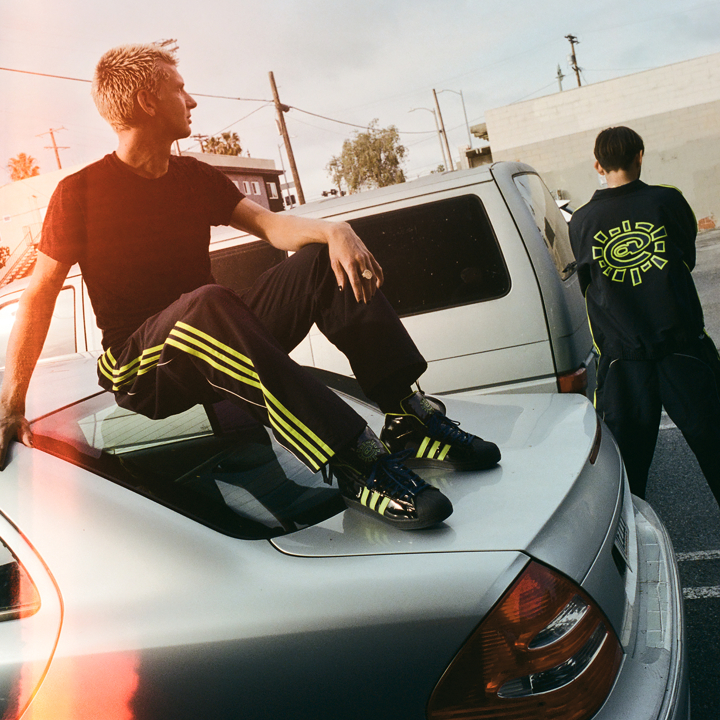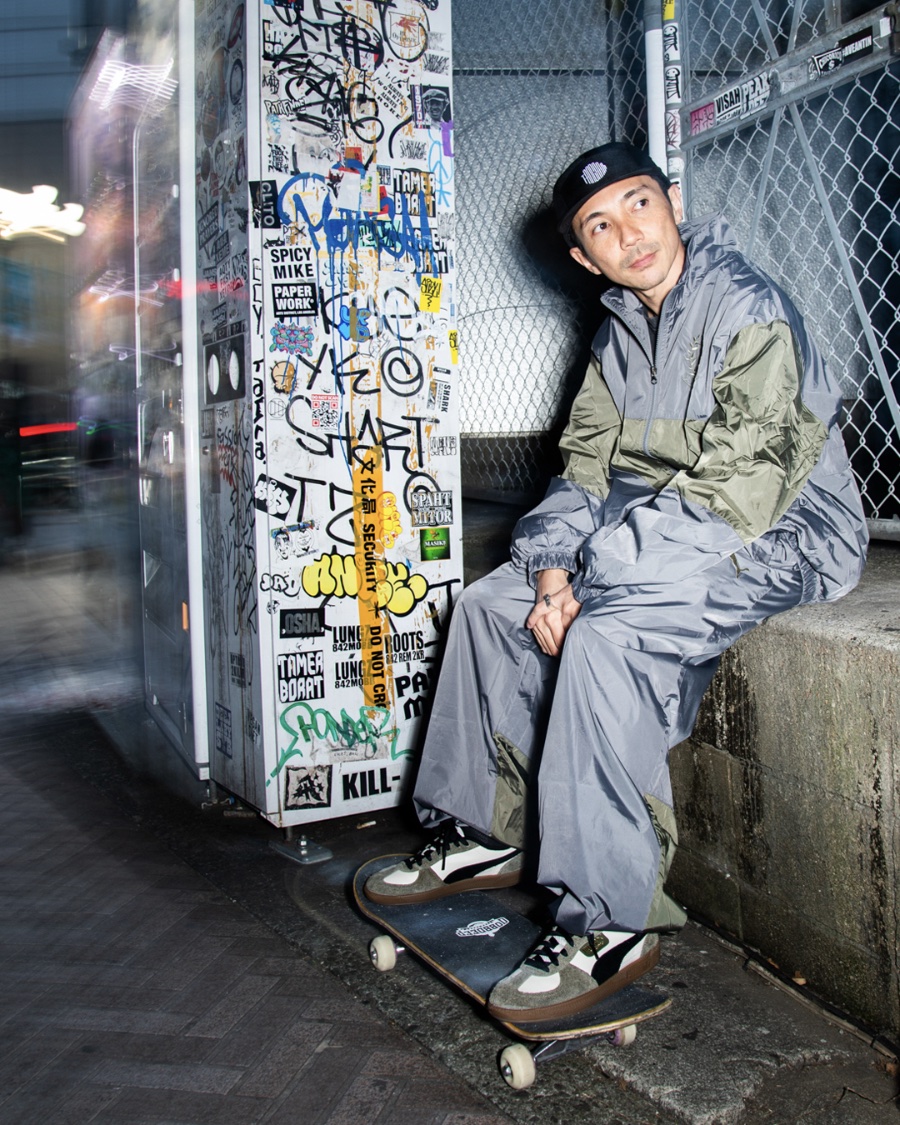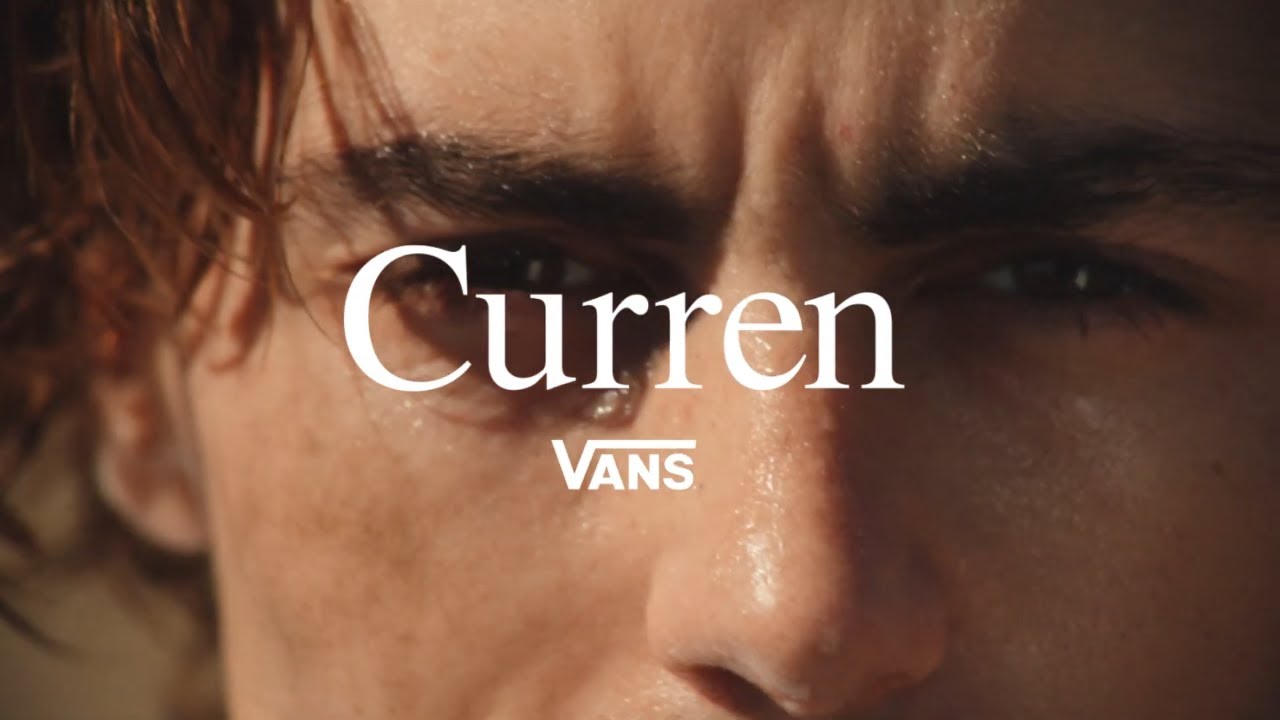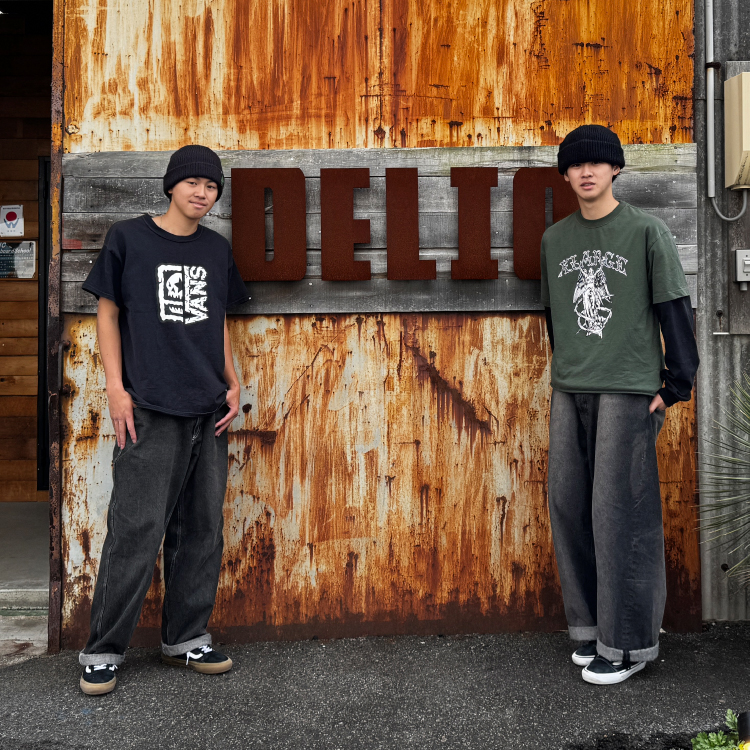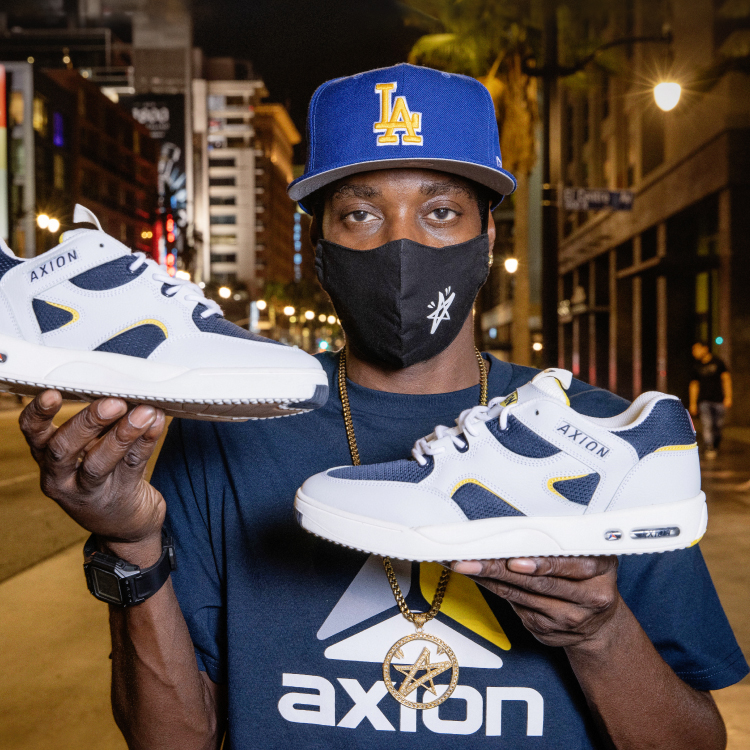
[ JAPANESE / ENGLISH ]
Photo courtesy of Axion
Special thanks_Gene Distribution
VHSMAG (V): You're originally from Harlem, New York and moved to California. I read somewhere that you were introduced to World Industries through Jef Hartsel and Jesse Martinez, but before that you rode for Powell for a week.
Kareem Campbell (K): Yeah. Well technically, I had already been getting flowed by Jesse Martinez and Jef. They were giving me their hand-me-downs and stuff like that. During that time, they were having the Powell Quartermaster Cup. It was the big contest series back in the day and every pro back in those days were entering it. I used to skate for a skate shop in Venice Beach. That's kind of where I was raised and brought up through skateboarding. So basically, I was entering the contest under the skate shop and I think I won it. Right when the finals happened, I got to know a lot of the different pros and I always looked up to Ray Barbee. Ray Barbee was always my idol. I remember Todd Hastings and Ray Barbee came up to me and they were like, "Hey, do you mind if we send you some boards?" I was like, "Hell yeah." I think they sent me like a box of 10 boards, and it was crazy. They took me to the warehouse, gave me all this stuff. So right after that, the next time I went to the beach was when I ran into... Well, I'd seen everybody and everybody saw me riding the Powell board and they were just like, "What's up with you? We heard you're riding for Powell now." I was like, "Well World wasn't trying to do anything." And then everybody kept saying, "Jesse and them, they're looking for you." So Jesse kind of ran up on me and he was like, "What's up?" I had kicked the board away. He was like, "What the fuck is this?" So basically, he just told Jef Hartsel and them, "Take him to the warehouse." So we ended up going to the warehouse, and that was the day I first met Rocco, Felix Arguelles and Mark Gonzales, and that's how it started. So yeah, I rode for Powell for about a week.
V: Is it true that Jesse Martinez was like, "You ride for World or you're gonna lose your fingers"
K: He's going to break my fingers? Yeah, because we were always like a family. We were really tight, but I was young. I was kind of starstruck because I got addressed by Todd Hastings and Ray Barbee, but then at the same time, I was like, "Well shit, nobody put me down. I ain't been to nobody's warehouse. I haven't been getting no free new boards and packages." But when I got on, I got like 20 boards. I remember Mark Gonzales, they were just stuffing a whole little plastic bag full of wheels. I came home fully hooked up.
V: Speaking of World Industries, I really love your New World Order part. There's that famous, "100 bucks, 100 bucks," but other than that, you were ollieing over this kid in the World Park.
K: That was Sal Rocco's son. We were all joking around and Sal was like, "You can't even ollie that high," or something. I told him I could ollie over his son and he was like, "What? All right let me see you do it." It was close (laughs).
V: That's what happened... Okay, who were some of the skaters you were inspired by in the early '90s?
K: It was such a wide range. Rodney Mullen for sure. He was a legend. He was the most influential... But everybody on the squad from Daniel Castillo, Shiloh Greathouse, Daewon... But then even outside of that, I liked Guy Mariano, Eric Koston, Keenan Milton, Gino... I was surrounded by so many, and we were all living in this whole little campus neighborhood of LA. It's just different people and different styles too. From technical to going big.
V: Around '93, pretty much a lot of the guys left World camp and started Girl but you never left. What was the reason for that?
K: When they left, Rick Howard had come to us. Me, Shiloh, Gabriel... There were so many different people they came at, and they were like, "Yo, we want to start this other company." And it was technically going to be called Sister. There was a lot of stuff going on, and at the same time, there were some differences between Jovontae Turner and Shiloh Greathouse. And my thing was like, "We're all coming as a package or not going to happen." I've always stood with my people. So I kind of backed out. I was like, "Nah, I think I'll just chill." At the same time, I was open game for anything that was a good situation. So when I talked to World and Rodney, I was like, "You guys are trying to build these robot teams. And skating isn't about that. Shit, you know something though, let me start my own company. I'm going to shake them up in a whole different way. I'm going to get real, real, real skaters."
V: Menace. So you picked all the skaters for the team?
K: Yeah. They were the skaters that were good, but at the same time, companies didn't know what to do with them. And they didn't fit the cookie cutter for what skateboarding was. I wasn't the cookie cutter, but I just broke my way in. So I kind of gave an inlet to help people that look like me or skate like me or act like me because I can understand them compared to a company owner that, back then, they're older, they're looking at these urban kids from different areas and not knowing how to understand them. So that's kind of what we did. We built up a squad. Back in those days when people used to be like, "You guys are a menace to society," type of thing. So we just kind of incorporated the whole element and shot it up to the moon.
V: What was the reason for not including yourself on the team?
K: Well, I wanted it to be a company. Because my name was so big at the time, I felt that I didn't want it to be something where it would be Kareem and then he has these guys under. So I went in reverse. I made them the star. Menace is always me too, but at the same time, I didn't want to take away no shine from none of the guys.
V: Those guys seemed pretty wild. You got Joey Suriel, Fabian Alomar, Billy Valdez... Any crazy stories from back in the day?
K: I mean, you've got to understand this. I'm the company owner. I'm pretty wild. We were young, we had a bunch of money. We could travel. We could go wherever we want. And back in those days, we had that attitude where instead of spending two years working on the video part, we just traveled a lot. So we saw a lot of people. We were traveling like nine months out of the year. That wasn't what companies did back then. So we just tried to be real with it and just be honest and have fun. We had fun. That was the biggest thing, have fun.
V: Juno getting on City Stars was big news in Japan. I remember you coming to Japan back then but how did that whole thing happen?
K: Well, I was out there and everyone kept showing me these videos and one of the guys had some video footage of Juno. He had an ill style and it was something about him, and then over the time that I was out there in Japan, I kept asking people about him. But no one can kind of get in touch with him. They were like, "Well, he goes to this place." They gave me an address, information and everything. So it was one early morning, I just took a train out there. I went to this place and I would skate around. I think it was a blue or green top. It was right by the little shopping district, and had a little train thing over it. And all day I couldn't find him. I was asking everyone. People are tripping because they're like, "Kareem Campbell?" And they're like, "Juno?" I'm trying to explain to them, "I'm trying to find where Junnosuke is." I think maybe a few hours later, he came through. And it was funny because he didn't have no clue, and people ran up to him before I could get to him. And then we kind of tried to talk and just skated. His style, his attitude... by the end of the day I was like, "You're the truth." I was like, "Would you like to ride for City Stars?" And he was like, "City Stars? Yeah." I remember I had one of my chains and I took it off my neck, and I gave it to him. I made sure he connected with the distributor. And then we made it happen. Juno was the truth. He's the truth.
V: Yeah. He's still killing it. Yeah.
K: Oh, yeah. We got Instagram and all that other stuff so you can always see stuff immediately. I'm like, "Damn." He's still murdering, still got that ill style.
V: Great story. Some random questions I want to ask... I know you've talked about this before, but is it true that you were checking your pager during a line in the schoolyard in Trilogy?
K: Yes. During that time, I was having my first son and it was very close to delivery time. I was all the way in San Diego, and I lived in LA. I was out there skating with Dyrdek and them. Every time my pager would go off, I got to see who it is because at any moment they could be like, "Hey, she's going into labor." So it went off in the middle of the line, so I just had to check and make sure it was okay, it's not 911. It was just one of those spontaneous moments.
V: You've done so much in skateboarding. You were on the top. But it seemed like you kind of walked away all of a sudden. What happened?
K: I was in everybody's face so much, and then it was going through a lot of different transitions of having companies, having business partners... A lot of it was my idea, my marking, my everything. But it was a combination of them handling the distribution side. And I made a lot of money for all of these companies but at the same time I always noticed it was financial problems. That's just the part of business where people rob you. You got to be careful. So it was a lot of transition for me as a skateboarder and owning all of these companies... I used to have 50, 60 people that were calling me on the phone for different things, from real skating problems to things going good to family problems to production problems, so many different things. And I had already taken away so long from raising my son. Also there was a lot of disloyalty, a lot of stuff like that. So it was like, let me just pull away. Let me actually not be in that radar 24/7, not running all these companies, not doing all of that until I can get a lot of stuff lined up for myself. So I did everything privately. When I moved to Texas, I teamed up with Mike Crum and Rob Cahill and started 4DWN. We're skating at the park all the time and we're having a ball. But it wasn't a thing that I wanted to push myself out there. I was doing a lot of real estate. So it was actually just having fun, loving skateboarding again.
V: This is something random again but Na-kel Smith is your nephew. He's a renowned pro, acting in a movie, doing music. How do you see his success?
K: He was always my little nephew, so as we were coming up, I got him his first board. He was on it 24/7, and as he was getting good and I was going through some transitional things at the same time, I could see his effort. He was 210% going in. And one of the things about it, though, is that he wanted to, more or less, do it for himself. He didn't want it to be like, "Oh, this is Reem's nephew." The people that really knew us close would be like, "Oh, that's Reem's nephew." But to the masses, it wasn't a thing that everything knew. It was like, "I'm Na-Kel. I'm going to be better than you Uncle Reem." And he's doing it. He's showing and proving. He's putting it down there, which is lovely... I did music, I did all these different things and it's good that he's doing it so young, and he's killing it. And he just skates, being himself. That's what I love. Yeah, that's my little nephew. Now, a lot more people know it because now it's okay to say. He's already established. He established himself.
V: Runs in the family. One more random question. Muska refused his Hall of Fame of Skateboarding last year. How did you take that?
K: I mean, for the most part, I didn't even know that he did it until it was already done. I woke up in the morning and everyone's calling me and texting me like, "Yo, what's going on?" So I had no clue that was going down, and then when I spoke to Muska, he just basically said, "Hey, I hope you're not upset. This is just how I felt. I watched you come up. I've watched you help bring up all these people." And it's almost one of those things that's like out of sight, out of mind. And he sees that in the same element. So he respected it in that kind of nature. And it's a fact, because I was running so many companies and doing so many different things, and I brought down a lot of companies. And a lot of those people are no longer there, and they might be working with the magazine or with these places. So it's easier to get skipped when you've done a lot of damage. And it's not like I tried to do anything. I just tried to make successful companies. I didn't go around ever stealing no guys or nothing. I mean, if you think about it, it's like even way back, the TransWorld top 30 skateboarders, I didn't even get in there.
V: What, really?
K: Yeah. And I wouldn't even know about these stuff, but just due to social media. People just come at me, and I'm like, "I don't even know who makes these polls and how they judge." But it doesn't matter because the impact that I'm getting from all my fans and my friends and everybody else, that's the most rewarding thing ever.
V: I guess there's a lot of politics...
K: Yeah, you got to remember it's a billion dollar industry.
V: So you brought back Axion. It's one of your companies that you started in '98. What was it like starting a shoe company back then? I'm sure it wasn't like starting Menace considering it's a shoe company.
K: I mean, to be very honest, I started it very similar to Menace. I was riding for Duffs that Rocco had owned. I had a pro shoe over there, and they were going through some legal issues. So Rocco was breaking away, and he was doing a company called Dukes with Jeremy Wray. He knew that I had already designed some stuff at Duffs, but then at the same time, I used to be tied with Droors, which was DC. So I used to be really tight with Ken Block so at one point in time, I was even thinking about going that way. But I went to Busan, Korea with Jeremy Wray to help design some shoes and ideas for Dukes. And in the process, the shoes that I had designed and the shoes that Jeremy Wray designed, they had two different types of style. And I just remember, Rodney called me and said, "Hey, Rocco wants to meet up with you." And I'm like, "Where at?" And he was... I had just got back from Europe, and I think it was like two day later. And he was like, "Yeah, can you fly out there to go see Rocco?" I'm like, "Yeah, I can go fly out there to see Rocco. Where's he at?" He's like, "Oh, he's in Lanai."
V: Back from Europe then to Hawaii... Pretty busy.
K: So I flew out there to Lanai, and we're staying at like the number one hotel in the US or whatever. And he came up with the samples of the shoes I designed and he asked me, "What do you think about starting a company? Me and you, 50/50. You do the marketing, you do the design stuff like you do, and I'll make sure it's pushed like Menace and everything else." The shoes came out 90% perfect. So I had to come up with a name and a logo and all of that. I had flown Delta Airline, so that's kind of where I made the logo. It's a mix between the Delta logo and... I've always had that thing, actions speak louder than words. It started like that overnight.
V: What about the team? You had the best like Gino and Guy...
K: I had an opportunity to do something that was my conceptual idea. So I wanted three of us and let it be the triangle. And I just kept it core. I got Gino. I got Guy. They all had style, they were good skaters.
V: And you relaunched Axion last year but there was a relaunch without your presence before that.
K: That was through C1RCA. Long story short, I was talking with them about doing business in the process and they started backdooring. They basically started taking bits and pieces of the trademark name. They just did a bunch of backdooring. It didn't really make sense for me to fight them going through that whole thing because I knew in all reality, all I could do was just crush it. And basically, by not giving it no support, they couldn't survive. I built so much of a good relationship with so many people and they realize, "This is like a scam, knock-off situation." You got to watch out. It's a dirty game wherever you go.
V: That sucks. But now Axion is back with your presence and you relaunched the first Guy Mariano shoe from the '98, the Genesis.
K: Yeah, we did 1,998 pairs and they're all numbered. The goal was to release it and let people know that this is from the original kit, but at the same time we're going to start developing and give you the real Axion, something people haven't seen before.
V: I've seen new silhouettes. Where's Axion headed?
K: When we were doing Axion back in the day, we were going so many different directional ways because we were trying to show that we're a real brand that's coming from skateboarding and streetwear. You had DC. You had eS. Then you had Axion. We were totally different. We were not trying to copy shoes. We were doing everything kind of original. But at the same time, we've got to diversify. We're going to get hesh and fresh. We're going to get both.
V: Palace is blowing up, and I see Menace in them. New Balance' Tiago shoe was inspired by the Axion Mariano shoe that you designed. Louis Vuitton's skate shoe was also inspired by your shoe. You have so much legacy that inspires people.
K: I think it's dope because it's inspiring. Because you got to think about it. I'm getting acknowledged to where it's like... you were ahead of the game and it's an inspiration for now. To think about something in '98 or 2000 being mimicked 20 years later. So it's flattering.
V: Looking back on all the things you've done, it's pretty insane. It's proof that you've don't things right.
K: Yeah, I mean, I listen. I listen to everybody. And now with the internet, sometimes I almost think I'm hearing too much... But you want to take in everyone's input. And like I see right now in skateboarding, everything is such a lookalike thing that people are kind of... Skateboarding to me, I think, is losing that edge to what we were. We were trendsetters because we were different. That was the thing. Skateboarding was about being different. No, it wasn't about mimicking and copying all these different guys.
V: Skateboarders used to be different. That's heavy coming from you. So Venice Beach, World, Menace / City Stars, Axion... I mean, you have all these phases as a pro skater and entrepreneur, and you're still going. Looking back, which era or phase would you say was most important in terms of shaping who you are?
K: My beginning phase because that's when I had the least knowledge. The hunger was so strong. When you don't have that knowledge and you're in these different types of worlds, you want to learn as much as you can. So that's fun. Typically, at a certain point, you're like, "Oh, I just need to know this much." Back in those days, it was like, "I want to know it all." So I think that's what helped to mold me into the better person I am now.
V: Nice. What's next for you? You got Axion, you got 4DWN with your friends...
K: I've got City Stars on board and that's really one of my babies. That one's about to really take off. And it's going to take off kind of how we did way back. I mean, I built a lot of stuff. Got a telecom company, still doing real estate, and one of my daughters got a makeup company. So I got my hands on a lot of different stuff. My girl, we've got the hair salon, and then we do hair products. So I'm always there, I'm behind the scenes. But I'm going to pop up a lot. I've been filming and doing some photo stuff.
V: I mean, I know you're skating. I was blown away when I saw that treflip fakie on a quarterpipe at the Berrics.
K: That's the thing. But in Texas, everyone's like, "We see Reem skate all the time." It's different. Living in LA and being in front of everyone's eyes compared to being out here where it's complete freedom. So it's lovely.
Kareem Campbell
@kareemcampbelldotcom
Born in 1973 in Harlem, NY. He was the face of World Industries in the 90's with his strong and technical skating. In the late 90's, he started Axion. He's known as the pioneer street skater/entrepreneur.
